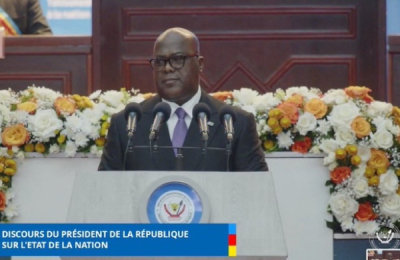The University of Kinshasa (Unikin) has unveiled a new low-carbon cement, which reduces carbon dioxide (CO₂) emissions by 25% compared to conventional cement. The innovation was presented at the 47th International Fair of Congo (Fickin) in the capital.
The cement has been in development since 2015 by a team from the university’s Department of Physics and Technology. According to Max Seke Vangu, a senior researcher at Unikin, the innovation relies on local raw materials, specifically natural reactive rocks that do not require an energy-intensive transformation beyond crushing, which helps limit the process's carbon footprint.
After a decade of research and with the support of a consortium of cement manufacturers, the project has reached a semi-industrial scale. Its developers claim the cement integrates ecological, economic, social, and health considerations, and they believe it can help improve living conditions while boosting resilience to climate change.
However, the university noted that it faces material constraints due to a lack of advanced equipment in its laboratories. These limitations have led researchers to collaborate with local cement manufacturers and conduct some work in South Africa.
Boaz Kabeya










